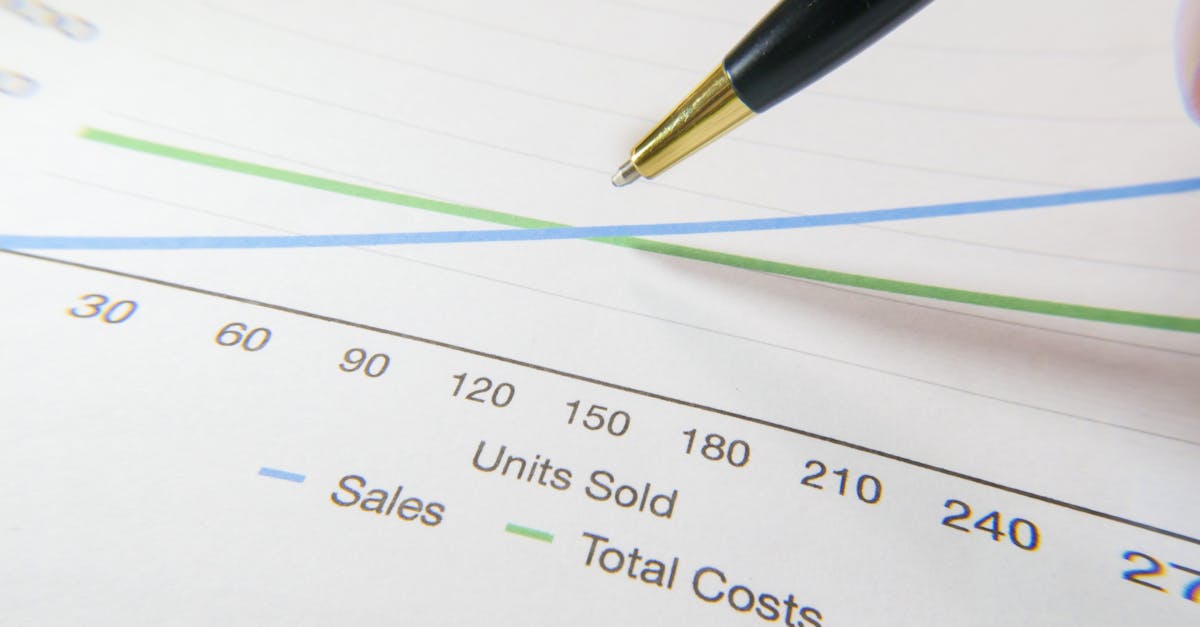Key Takeaways
- Combining AI with Business Process Automation (BPA) enhances marketing and sales by streamlining workflows, improving efficiency, and driving better ROI through data-driven decision-making.
- BPA automates repetitive tasks like lead management, reporting, and customer interactions, freeing teams to focus on more strategic activities.
- AI-powered tools enable precise customer targeting, personalized campaigns at scale, and real-time analytics for agile marketing strategies.
- In sales operations, AI-driven BPA improves lead qualification, boosts forecasting accuracy, and automates post-sales processes for stronger customer relationships.
- Striking a balance between automation and human interaction ensures efficiency without compromising authenticity or customer engagement.
- Emerging trends like generative AI and advanced predictive analytics are reshaping how businesses personalize experiences and optimize performance in marketing and sales.
In today’s fast-paced digital world, businesses are under constant pressure to deliver personalized experiences and drive revenue. By 2025, it's estimated that AI will power 95% of customer interactions, revolutionizing how we approach marketing and sales. Combining Artificial Intelligence (AI) with Business Process Automation (BPA) creates a powerful synergy that helps streamline operations while boosting efficiency.
We’re no longer just automating repetitive tasks; we’re leveraging AI to analyze data, predict trends, and make smarter decisions in real time. From lead generation to customer retention strategies, this dynamic duo transforms how we connect with our audience and optimize performance. The result? Enhanced productivity and better ROI for our efforts.
As competition grows fiercer than ever, embracing these technologies isn’t just an option—it’s a necessity. Let’s explore how integrating AI within BPA can redefine the way we manage marketing and sales operations for sustainable success.
Understanding BPA And Its Role In Business
Business Process Automation (BPA) simplifies workflows by automating tasks and processes. It's a key driver of efficiency, especially in marketing and sales operations.
What Is BPA?
BPA uses technology to automate repetitive business activities. It eliminates manual intervention in tasks like data entry, report generation, or customer follow-ups. By streamlining these routines, businesses save time and reduce errors.
For instance, instead of manually tracking leads across multiple platforms, BPA tools can centralize this task. This automation allows teams to focus on nurturing relationships rather than organizing spreadsheets. AI integration enhances BPA further by analyzing large datasets and offering actionable insights in real-time.
Businesses often adopt BPA for processes with high-volume activity where precision is crucial. Sales order processing or campaign performance tracking are common examples. Using such tools accelerates task completion while maintaining consistency.
Key Benefits Of BPA In Marketing And Sales
BPA boosts productivity by automating labor-intensive work in marketing and sales pipelines. One significant advantage is improved lead management through automated workflows that prioritize prospects based on predefined criteria.
Enhanced customer engagement emerges as another benefit when responses to inquiries are instantaneous via chatbots or automated emails. For example, AI-driven solutions within BPA ensure personalized communication for potential clients without manual effort.
Data accuracy improves because automation removes room for human error during data transfer or analysis stages. Teams receive precise reports faster, which helps refine strategies effectively.
Additionally, scaling campaigns becomes seamless with less resource dependency since automation handles increased workloads effortlessly during peak periods like product launches or seasonal promotions.
The Role Of AI In BPA
AI plays a transformative role in Business Process Automation by streamlining operations and enhancing marketing and sales efficiency. Its ability to analyze data, automate tasks, and provide actionable insights makes it indispensable for modern businesses.
How AI Transforms BPA
AI elevates BPA by automating repetitive tasks like data entry, customer inquiries, and report generation. Combining Robotic Process Automation (RPA) with AI reduces human error and saves significant time. For example, instead of manually compiling weekly sales reports, an AI-powered system can generate comprehensive analytics in seconds.
AI enhances decision-making by analyzing large datasets quickly and accurately. This is particularly impactful in predicting customer behavior patterns or identifying emerging market trends. Businesses use these insights to personalize campaigns or refine their strategies for better outcomes.
By integrating machine learning algorithms into BPA systems, companies gain the ability to adapt processes dynamically based on real-time inputs. For instance, marketing automation tools driven by AI adjust messaging based on user interactions rather than sticking to pre-defined schedules.
Examples Of AI-Powered BPA Applications
In marketing, chatbots powered by NLP respond instantly to customer queries across platforms without requiring manual intervention. These bots improve lead qualification while providing consistent support 24/7.
Sales teams leverage predictive analytics tools that forecast revenue trends or identify high-potential prospects within existing pipelines. CRM software equipped with AI suggests optimal times for follow-ups or recommends upselling opportunities based on prior purchase behavior.
Email campaign management benefits from automated segmentation using AI-driven criteria such as demographics or browsing history. This ensures tailored content delivery that resonates more with target audiences.
Additionally, intelligent RPA solutions streamline back-office operations like invoice processing and inventory updates—freeing resources for creative pursuits like campaign ideation or client relationship building.
Enhancing Marketing Operations With AI And BPA
AI integrated with BPA transforms marketing by automating processes and delivering actionable insights. Businesses gain efficiency and precision in tasks like customer targeting, campaign personalization, and analytics.
Improving Customer Targeting
AI-powered BPA tools analyze large datasets to uncover patterns in customer behavior, preferences, and purchasing trends. This data helps us create campaigns that resonate with specific audience segments. For example, predictive analytics can identify high-value prospects based on past interactions. By focusing resources on these segments, we achieve better conversion rates while optimizing marketing budgets.
Advanced algorithms also enable real-time adjustments to strategies based on emerging data trends. Suppose a sudden spike occurs in interest around a product category; AI platforms can immediately recommend reallocating ad spend or adjusting promotional content to capitalize on the trend.
Personalizing Marketing Campaigns At Scale
Personalization becomes scalable when AI joins forces with BPA. Dynamic content generation tools use Natural Language Processing (NLP) and Machine Learning (ML) to craft personalized email campaigns, social media ads, or website experiences tailored for individual users. For instance, automated systems can send product recommendations reflecting a customer's browsing history within seconds of their last action online.
Through automation, we manage thousands of personalized interactions simultaneously without manual intervention. Imagine an e-commerce brand sending unique discount codes tied to shopper profiles during peak sales seasons—achieving this manually would be nearly impossible at scale.
Automation Of Campaign Analytics
Campaign performance tracking is faster with AI-driven automation tools. These systems consolidate multi-channel data into easy-to-read dashboards within moments rather than hours of manual analysis efforts.
For instance, marketers receive instant reports outlining which ads perform best across demographics or regions—allowing agile response strategies mid-campaign when necessary changes could improve ROI dramatically.
Boosting Sales Efficiency Using AI And BPA
AI integrated with BPA transforms sales operations by automating tasks, improving forecasting accuracy, and streamlining workflows. This combination allows teams to focus on high-value activities that drive revenue growth.
Streamlining Lead Qualification
AI-powered BPA simplifies the lead qualification process by quickly analyzing large volumes of customer data. These tools identify high-potential leads based on predefined criteria like purchasing behavior or engagement patterns. For example, AI can score leads in real time using CRM data, helping sales teams prioritize their outreach.
Automated systems route qualified leads directly to the appropriate team member, reducing response times and increasing conversion rates. Chatbots equipped with NLP engage prospects instantly, gathering information while providing tailored responses. This eliminates manual follow-ups and ensures no opportunity slips through the cracks.
Tools like Field Service CRM can extend these benefits to service businesses by seamlessly integrating customer interactions into a unified database. By removing repetitive administrative work from the equation, we allow our teams to concentrate on nurturing relationships and closing deals more effectively.
Enhancing Sales Forecasting Accuracy
Accurate sales forecasting is critical for resource allocation and strategic planning. AI-driven BPA improves this process by analyzing historical data alongside real-time market trends. Predictive algorithms highlight potential opportunities or risks based on patterns impossible for humans to detect quickly.
For instance, an automated system might predict seasonal demand fluctuations or identify regions with untapped potential. These insights guide inventory decisions or territory assignments without guesswork.
Service industry software solutions benefit significantly here as well. Technician scheduling tools could adapt dynamically based on forecasted job volumes, ensuring optimal workforce utilization during peak periods while minimizing downtime when demand dips.
Automating Post-Sales Processes
Efficient post-sales processes are key to maintaining strong customer relationships and driving repeat business. With AI-driven automation, tasks such as invoicing, order tracking, and feedback collection become seamless.
Service invoicing software automatically generates detailed invoices after job completion—including pricing breakdowns—reducing delays in payment cycles while enhancing professionalism. Integrated feedback systems send personalized surveys immediately after purchase or service delivery via mobile field service apps or email campaigns.
Challenges And Considerations
AI-powered Business Process Automation brings immense potential, but it also presents challenges that demand careful planning and execution.
Common Pitfalls To Avoid
Ignoring data quality causes significant issues. Poor-quality data can lead to inaccurate AI predictions, derailing marketing and sales strategies. Regularly auditing datasets prevents such errors.
Over-automating processes risks losing authenticity. For example, automating every customer interaction might make communications feel impersonal. Striking the right balance keeps experiences engaging while maintaining efficiency.
Not investing in team training limits success. Employees need to understand how to leverage AI tools effectively. Without this knowledge, even advanced systems may underperform.
Relying heavily on initial setups without reviewing them regularly creates inefficiencies over time as market and business needs evolve. Periodic evaluations of workflows ensure they remain aligned with goals.
Bypassing compliance standards exposes companies to legal risks. Adhering to data privacy laws like GDPR or CCPA safeguards customer trust and avoids penalties.
Balancing Automation With Human Touch
AI excels at handling repetitive tasks but can't replace human empathy in relationships. Combining automation with personal interactions strengthens customer engagement.
For instance, automated email campaigns quickly deliver personalized content based on user behavior; however, adding follow-up calls from sales reps builds deeper connections with leads.
Creating hybrid workflows maximizes output while keeping a human-centric approach intact. Sales teams can use AI for lead scoring yet rely on personal judgment when closing deals or negotiating terms.
Empowering employees through technology fosters innovation rather than resistance. By showing how AI complements their roles instead of replacing them, teams embrace new tools confidently without fear of redundancy.
Regular feedback loops between automated systems and human oversight maintain service quality while allowing flexibility for unique scenarios that require creative problem-solving skills only humans offer efficiently today.
Future Trends In AI And BPA For Marketing And Sales
AI and BPA are advancing rapidly, reshaping marketing and sales operations. Emerging trends point to more efficient workflows and deeper customer insights.
Evolution Of AI Technology In BPA
AI technology is evolving to automate complex processes in marketing and sales. Predictive analytics tools are becoming more precise, offering businesses actionable insights into customer behavior. For example, advanced algorithms now predict purchasing patterns with higher accuracy, allowing us to refine our strategies. These tools also identify market opportunities faster than traditional methods.
Natural Language Processing (NLP) continues improving chatbots and virtual assistants. They’re capable of understanding context better, delivering accurate responses that enhance customer experiences. As a result, companies can manage large-scale customer interactions without compromising quality.
Integration between AI-driven platforms is increasing efficiency across departments. Marketing teams benefit from real-time data synchronization with CRM systems, while sales leverage AI-powered lead scoring for quicker decision-making. Tools like automated email campaign managers now adjust content dynamically based on user engagement metrics.
As these technologies progress, businesses adopting them gain competitive advantages through faster execution and improved ROI.
The Increasing Role Of Generative AI
Generative AI is transforming personalization in marketing campaigns. By analyzing vast datasets, it creates tailored content suited to individual preferences at scale. We’ve seen tools generating personalized emails or social media posts that resonate deeply with target audiences.
In sales operations, generative models simplify proposal creation by drafting contracts or presentations automatically based on input parameters. This saves time for teams focusing on closing deals rather than administrative tasks.
Content optimization is another area where generative AI excels. It refines ad copy or landing page designs using performance data from previous campaigns, driving higher conversion rates over time.
Conclusion
Leveraging AI within BPA is no longer a luxury; it's a necessity for businesses aiming to stay competitive in marketing and sales. These technologies empower us to work smarter, not harder, by streamlining processes, delivering actionable insights, and enhancing customer engagement.
By integrating AI-driven tools with automation workflows, we can achieve greater efficiency while maintaining the human touch that builds lasting relationships. As innovation continues to advance, adopting these solutions positions us to thrive in an ever-evolving market landscape.
Frequently Asked Questions
What is Business Process Automation (BPA)?
Business Process Automation (BPA) refers to using technology to automate repetitive tasks and streamline workflows. It reduces manual intervention, improves efficiency, and allows teams to focus on higher-value activities like decision-making and customer engagement.
How does Artificial Intelligence (AI) enhance BPA?
AI enhances BPA by analyzing large datasets, predicting trends, and providing real-time insights. It automates complex processes like lead qualification, customer support via chatbots, and personalized marketing campaigns, improving productivity and decision-making.
Why is integrating AI with BPA important for businesses?
Integrating AI with BPA helps businesses optimize operations, reduce human errors, improve efficiency in marketing/sales processes, and achieve better ROI. It enables faster decision-making through predictive analytics while enhancing customer personalization at scale.
What are the benefits of using BPA in marketing?
BPA simplifies workflows by automating tasks such as data entry, report generation, email campaigns, and performance tracking. This improves resource allocation for marketers to focus on creativity while boosting engagement through automated responses.
Can AI-powered BPA improve sales efficiency?
Yes! AI-powered BPA improves sales efficiency by automating lead qualification, streamlining workflows like invoicing or post-sales feedback collection, increasing forecasting accuracy through trend analysis, and enabling faster response times.
What role does predictive analytics play in AI-driven automation?
Predictive analytics uses historical data combined with real-time inputs to forecast customer behavior or market trends. This helps businesses refine strategies for better targeting and resource optimization in both marketing and sales efforts.
How do chatbots contribute to AI automation?
Chatbots powered by AI provide instant customer support by understanding queries using Natural Language Processing (NLP). They handle routine inquiries efficiently while freeing up human agents for more complex issues.
Is it possible to personalize at scale using AI-powered tools?
Absolutely! With Machine Learning (ML) algorithms and Natural Language Processing (NLP), businesses can deliver highly tailored content across thousands of interactions simultaneously—such as personalized emails or dynamic ads—ensuring improved user experiences.
What challenges might occur when implementing AI-powered BPA?
Challenges include poor data quality management, over-automation leading to a lack of personal touch in customer interactions, inadequate team training on new systems, privacy compliance issues, and misalignment with business goals if not regularly evaluated.
How can businesses ensure successful adoption of AI-integrated BPA?
Careful planning is key. Businesses should prioritize high-quality data management; balance automation with human oversight; invest in employee training; evaluate system performance frequently; align tools with business objectives; and comply with privacy standards consistently.
Are there future trends shaping the integration of AI into BPA?
Yes! Future trends include advanced predictive analytics offering precise insights into consumer behavior; generative AI creating personalized content automatically; enhanced NLP technologies improving chatbot communication; and real-time synchronization boosting collaboration across departments.






